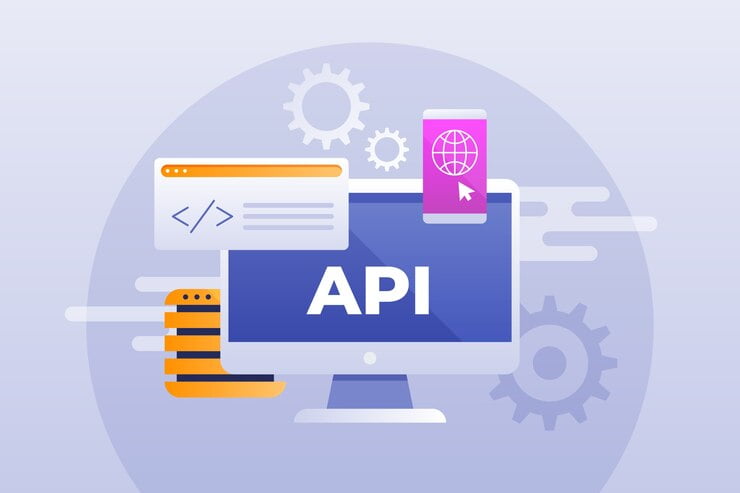Digital marketing refers to the use of digital channels, platforms, and technologies to promote and advertise products, services, or brands. Unlike traditional marketing methods that rely on offline channels such as print media or television, digital marketing leverages the power of the internet and electronic devices to reach a target audience.
Key components of digital marketing include:
- Search Engine Optimization (SEO): The process of optimizing a website to improve its visibility in search engine results. This involves various strategies to enhance a website’s ranking on search engine results pages (SERPs).
- Search Engine Marketing (SEM): Paid advertising on search engines, often in the form of pay-per-click (PPC) advertising. Advertisers bid on keywords to have their ads displayed when users search for specific terms.
- Social Media Marketing (SMM): Promotion of products or services on social media platforms like Facebook, Instagram, Twitter, LinkedIn, and others. It involves creating and sharing content, engaging with the audience, and running targeted advertising campaigns.
- Content Marketing: Creating and distributing valuable and relevant content to attract and retain a target audience. Content marketing can take various forms, including blog posts, articles, videos, infographics, and more.
- Email Marketing: Sending targeted messages and promotional content to a group of recipients via email. Email marketing is often used to nurture leads, build customer relationships, and promote products or services.
- Affiliate Marketing: A performance-based marketing strategy where businesses reward affiliates (partners) for driving traffic or sales to the business through the affiliate’s marketing efforts.
- Influencer Marketing: Collaborating with influencers, individuals with a significant online following, to promote products or services. Influencers can have a strong impact on their followers’ purchasing decisions.
- Analytics and Data Analysis: Utilizing tools and analytics platforms to track and measure the performance of digital marketing campaigns. This data helps marketers understand user behavior, optimize campaigns, and make informed decisions.
Digital marketing offers several advantages, including the ability to target specific audiences, track and measure campaign performance in real-time, and adjust strategies based on data and analytics. It has become a crucial component of overall marketing strategies for businesses in the modern digital landscape.
Digital marketing Works
As a digital marketer, some of the key tasks and responsibilities you might be expected to perform include:
- Developing and implementing digital marketing strategies: This involves analyzing business goals, target audience, and market trends to create effective digital marketing plans. You might be responsible for developing campaigns across multiple channels, such as search, social media, email, and display advertising.
- Content creation: Creating engaging and relevant content, such as blog posts, videos, infographics, and social media posts, is an essential part of digital marketing. You might be responsible for researching and writing content, or working with other team members or freelance writers to develop content that resonates with your target audience.
- Search engine optimization (SEO): Improving website visibility and driving organic traffic through search engine optimization is a crucial aspect of digital marketing. You might be responsible for conducting keyword research, optimizing website content, and managing on-page and off-page SEO tactics.
- Paid advertising: Digital marketers are often responsible for managing paid advertising campaigns, such as Google Ads, social media ads, and display advertising. This includes developing ad creatives, setting budgets, targeting audiences, and monitoring campaign performance.
- Analytics and reporting: Measuring and reporting on the performance of digital marketing campaigns is critical for identifying areas for improvement and demonstrating ROI. You might be responsible for tracking and analyzing data from various digital marketing channels, and creating regular reports to share with stakeholders.
- Social media management: Social media plays a critical role in digital marketing, and you might be responsible for managing social media channels, creating content, engaging with followers, and tracking social media metrics.
- Email marketing: Developing and executing email marketing campaigns is an important aspect of digital marketing. You might be responsible for creating email campaigns, building email lists, and measuring email campaign performance.
Overall, the work of a digital marketer involves a wide range of tasks, from developing strategies and creating content to managing advertising campaigns and analyzing data. To be successful in digital marketing, it’s important to stay up-to-date with the latest trends and techniques, and be able to work collaboratively with cross-functional teams to achieve business goals.
Who can learn digital marketing
Digital marketing is a field that is open to a wide range of individuals, and it can be learned by anyone who has an interest in acquiring digital skills for marketing purposes. Here are some groups of people who can benefit from learning digital marketing:
- Marketing Professionals: Traditional marketers looking to enhance their skills and adapt to the digital landscape can benefit significantly from learning digital marketing techniques.
- Business Owners and Entrepreneurs: Individuals running their own businesses can learn digital marketing to promote their products or services online, reach a wider audience, and increase sales.
- Students and Graduates: Those pursuing studies in marketing, business, communication, or related fields can acquire digital marketing skills to boost their employability and stay competitive in the job market.
- Career Switchers: Individuals looking to change careers or enter the marketing industry can learn digital marketing as a way to acquire relevant skills and increase their job prospects.
- Freelancers and Consultants: Freelancers, including writers, designers, and consultants, can learn digital marketing to expand their service offerings and attract more clients.
- Sales Professionals: Sales professionals can benefit from digital marketing skills to generate leads, nurture prospects, and close deals in the digital space.
- Small Business Teams: Small businesses with limited resources may have teams responsible for various functions. Learning digital marketing can help team members contribute to online visibility and business growth.
- E-commerce Professionals: Those involved in e-commerce, whether in product management, customer service, or other roles, can benefit from understanding digital marketing to drive online sales.
- Creatives: Content creators, graphic designers, writers, and other creative professionals can leverage digital marketing skills to promote their work and reach a wider audience.
- Anyone Interested in Marketing: Digital marketing is accessible to anyone interested in the field, regardless of background. Online courses, workshops, and resources are available for beginners and can provide a solid foundation in digital marketing concepts and practices.
There are various online courses, certifications, and resources available that cater to different skill levels, from beginners to advanced practitioners. These courses cover topics like SEO, social media marketing, content marketing, email marketing, and more. Many platforms, such as HubSpot Academy, Google Digital Garage, and Coursera, offer free or affordable digital marketing courses.
What is digital marketer?
A digital marketer is a professional who specializes in promoting and advertising products, services, or brands through digital channels and platforms. Digital marketers leverage online tools, technologies, and strategies to reach a target audience, build brand awareness, drive traffic, and generate leads or sales. The role of a digital marketer is diverse and may involve various aspects of online marketing.
Key responsibilities of a digital marketer may include:
- Search Engine Optimization (SEO): Optimizing website content and structure to improve visibility in search engine results and attract organic traffic.
- Search Engine Marketing (SEM): Managing paid advertising campaigns on search engines, such as Google Ads, to increase visibility and drive targeted traffic through paid placements.
- Social Media Marketing (SMM): Creating and executing social media strategies on platforms like Facebook, Instagram, Twitter, LinkedIn, and others to engage with the audience, build a community, and promote products or services.
- Content Marketing: Developing and implementing content strategies, including creating blog posts, articles, videos, and other content to attract, educate, and engage the target audience.
- Email Marketing: Planning and executing email campaigns to nurture leads, communicate with customers, and promote products or services.
- Analytics and Data Analysis: Using tools and analytics platforms to track and measure the performance of digital marketing campaigns, gaining insights into user behavior, and making data-driven decisions.
- Conversion Rate Optimization (CRO): Improving website or landing page elements to enhance user experience and increase the likelihood of visitors taking desired actions, such as making a purchase or filling out a form.
- Affiliate Marketing: Collaborating with affiliate partners to promote products or services and managing relationships with affiliates.
- Influencer Marketing: Identifying and partnering with influencers to promote products or services to their followers.
- Digital Advertising: Creating and managing various types of digital ads, including display ads, video ads, and native ads, to reach a specific target audience.
Digital marketers need to stay updated on industry trends, tools, and best practices, as the digital marketing landscape is dynamic and constantly evolving. Depending on the organization’s size and structure, digital marketers may specialize in specific areas or handle a broader range of responsibilities. Effective digital marketers are analytical, creative, and adaptable, as they navigate the complexities of the online marketing world to achieve their goals.
Read more
How to improve wordpress website performance on mobile
What is google ads
Google Ads is an online advertising platform developed by Google, which allows businesses and individuals to display ads on Google’s search engine and its partner sites. With Google Ads, businesses can create and manage ad campaigns that target specific keywords, geographic locations, languages, and devices.
Here are some key features and components of Google Ads:
- Ad campaigns: Google Ads allows businesses to create and manage different ad campaigns, each with its own specific goals, budgets, and targeting options. Ad campaigns can target users through search ads, display ads, video ads, or app ads.
- Keywords: Keywords are specific words or phrases that businesses can target in their ad campaigns. When users search for these keywords on Google, ads relevant to the search query are displayed.
- Ad formats: Google Ads supports various ad formats such as text, image, video, and responsive ads, allowing businesses to showcase their products or services in different ways.
- Ad targeting: Google Ads allows businesses to target their ads based on geographic location, language, device, time of day, and other factors. This helps businesses to reach their target audience and maximize their ad spend.
- Ad bidding: Ad bidding is the process of setting a maximum amount that a business is willing to pay for a click on its ad. With Google Ads, businesses can choose between manual and automated bidding strategies.
- Ad tracking and optimization: Google Ads provides businesses with detailed analytics and insights into the performance of their ad campaigns. This information can be used to optimize campaigns, adjust budgets, and improve the overall return on ad spend.
Overall, Google Ads is a powerful advertising platform that allows businesses to reach their target audience and promote their products or services on Google’s search engine and its partner sites. With its sophisticated targeting options and powerful analytics, Google Ads can be an effective tool for businesses of all sizes to drive traffic, generate leads, and increase sales.




Pingback: Describe digital marketing work for all domain